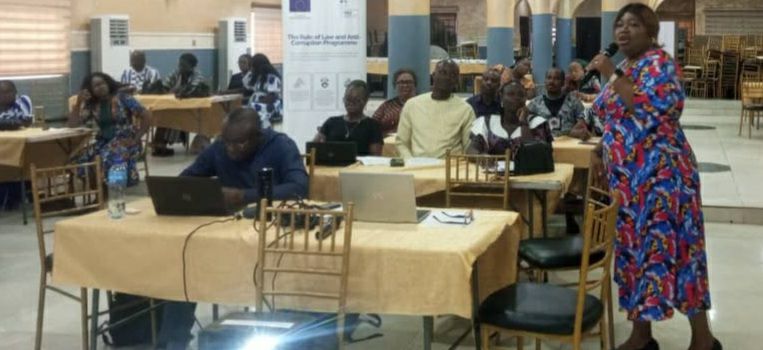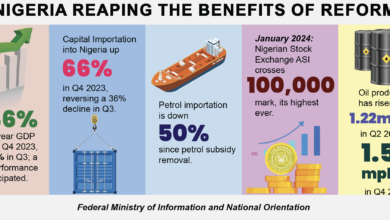RoLAC Charges Monitoring And Evaluation Committees To Be Alive To Their Responsibility

The Coordinator, Rule of Law and Anti-Corruption, (RoLAC 2) program in Anambra State, Dr. Josephine Onah, has charged members of the Monitoring and Evaluation Committees of the State Anti-Corruption Strategy, ANSACS, to be alive to their responsibility of keeping other players on their toes.
Angel Network News (ANN) reports that
Onah gave the charge during a two-day capacity building training for members of the M&E Committees constituted under the RoLAC 2 programme funded by the European Union and implemented by International Institute for Democracy and Electoral Assistance (International IDEA).
Onah said the capacity building training was conceived to properly equip the M&E committee members for the task ahead of them.
“Our consultants have come to build your capacity and to define your role. I want you to understand your duties and commit to effective implementation.
“That is the only way we can have an active state steering committee, and ACCs. That is the way we can have an active ANSAC secretariat. An active M&E will keep the secretariat on their toes.
“It is quite sacrosanct that we have this committee working, running very effectively for us to have robust results in the anti-corruption implementation.
On the occasion, RoLAC Lead Consultant, Prof. Ada Chidi-Igbokwe, urged members of the M&E committees to own the anti-corruption campaign across Ministries Departments and agencies (MDAs).
This, she said will ensure that the campaign is sustained and continues after the RoLAC intervention may have ended. “It is regrettable that many lofty programmes in the past died immediately the foreign organizations sponsoring them withdrew funding.
“I am really concerned about sustainability of this programme because if not that RoLAC 2 came, all that was done during RoLAC 1 would have been wasted.
“Members of the M&E Committee then only visited the MDAs once during the baseline survey and never repeat it until the end of RoLAC 1.
Chidi-Igbokwe charged the M&E committee members to regularly monitor government activities and operations to ensure accountability transparency and quality service delivery.
“If you are not working well, the implementation will be flawed. So, you must be on your toes immediately you are deployed to various MDAs.
“Anti-corruption committees ACCs in the MDAs will be effective only if you effectively discharge your oversight duty.
In a presentation on data collection and analysis, another Consultant, Prof. Onyiukwu Onyiukwu, stressed the need for accurate data in measuring success or failure of ANSACS implementation.
“Data is critical to achieving success. If you cannot recognize failure, you cannot correct it. If you cannot see success you cannot learn from it.
“If you can’t demonstrate results, you can’t win public support. Whether monitoring or evaluation, data is central” he noted.
According to Prof Onyiukwu, data is best collected routinely and not through survey as the case is in the country.
“Every unit of government is supposed to be a data collection point. Unfortunately, our government delivers services but it does not keep data.
“Any time we need data, we resort to survey because we have failed fundamentally to collect data when we were supposed to do. In other climes every unit of government is interested in data”.
“M&E is a veritable tool of performance measurement and tracking. The scorecard for tracking performance results run on timely generation and analysis of relevant data.
The highly interactive training session offered members of the state and local government ANSACS M&E committees the opportunity to seek clarifications about their roles and how best to discharge their duties.







